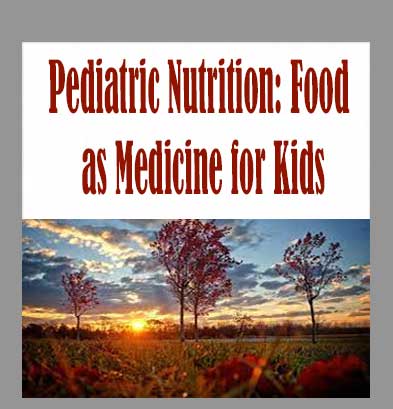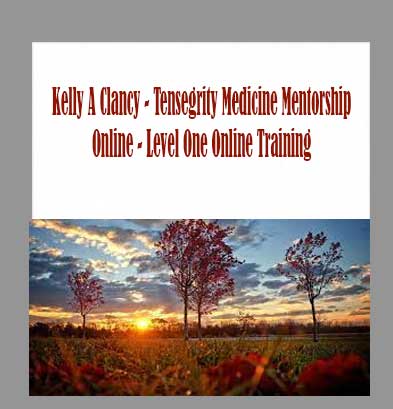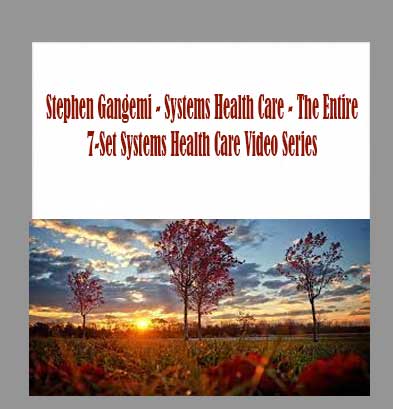
Description
Pediatric Nutrition: Food as Medicine for Kids download , Pediatric Nutrition: Food as Medicine for Kids review , Pediatric Nutrition: Food as Medicine for Kids free
Pediatric Nutrition: Food as Medicine for Kids
Unlock the secrets to nurturing healthier, happier children through the power of nutrition!
Is your passion to make a positive impact on the health and well-being of children? Do you want to gain comprehensive knowledge about pediatric nutrition and its role as a form of medicine for kids? Look no further! Our online course is here to empower you with the expertise and skills you need.
Clinicians often encounter several challenges and issues related to pediatric nutrition and healthy eating while caring for children and families. Some of these issues include:
- Ineffective Management of Food Allergies
- Underdiagnosed Malnutrition
- AFRID and Eating Disorders
- Weight Bias/Overemphasis on Weight in Children
- Parent Confusion about Nutritional Needs
- Specialty Diet Restrictions
- Unhealthy Food Relationships
- Unrealized Potential of Pediatric Culinary Medicine
- Limited Adaptability of Pediatric Feeding Therapy
- Inappropriate Use of Nutraceuticals and Supplements
Our course equips you with the expertise, skills, and knowledge to navigate these complex pediatric nutrition challenges effectively. Join us and empower children and their families to make informed choices for a lifetime of good health!
Discover our comprehensive online course and become a pediatric nutrition expert!
Course Overview
Our comprehensive course covers a wide range of topics to equip you with the knowledge and practical skills necessary to become a proficient pediatric nutrition expert. Whether you’re a healthcare professional or educator, this course will provide you with invaluable insights into improving children’s health through nutrition.
Become empowered to solve a range of critical problems related to pediatric nutrition, benefiting both the children under your care and your own professional growth.
When you take this course, you will acquire the knowledge, skills, and confidence needed to address these critical issues in pediatric nutrition, ultimately making a positive impact on the health and well-being of children.
Open up new opportunities for your career and professional development in the field of pediatric nutrition!
Course Highlights:
- Understand food allergies and learn how to create safe and nutritious meal plans for children with allergies.
- Master the specialized dietary needs of children with renal conditions, ensuring they thrive.
- Explore pediatric malnutrition and nutrition-focused physical exams to enhance your assessment skills.
- Delve into the complexities of ARFID and traditional eating disorders in children and discover effective intervention strategies.
- Learn practical techniques to help children build a positive relationship with food.
- Integrate nutrition and stress reduction strategies with culinary medicine.
- Gain insights into biomedical metrics, health risks, and combating weight bias in children.
- Equip yourself to guide parents toward safe and nutritious choices for their children.
- Discover how to support healthy growth in children through the early life stages.
- Learn strategies for adapting pediatric feeding therapy in various settings — clinic, home, school, and online.
- Understand the safe and appropriate use of nutraceuticals and supplements in children.
Why Choose Our Course?
Our course is designed with your success in mind. Here’s why you should enroll today:
- Comprehensive Curriculum: Covering diverse and unique topics, our course provides you with a well-rounded understanding of pediatric nutrition.
- Expert Faculty: Learn from renowned experts in the field who are passionate about sharing their knowledge.
- Professional Development: Enhance your career prospects by gaining expertise in pediatric nutrition.
- Patient Outcomes: Provide valuable consultation while improving nutritional outcomes for pediatric patients and their families.
Course Session Details
Register now, and you’ll get 8 amazing modules that cover the gamut of pediatric nutrition topics along with evidence-based strategies to enhance your practice and educate the patients and families you care for.
We selected the topics that are the most relevant in pediatric nutrition today. You’ll walk away with a thorough understanding of hot topics in pediatric nutrition and easy-to-apply interventions for:
Managing Pediatric Food Allergies
Allison Anderson, MS, CPNP-PC
Prevalence and Types of Reactions
- Growing Prevalence of Pediatric Food Allergies
- Possible Causes and Contributing Factors
- Types of Allergic Reactions in Children
Detection and Diagnosis of Food Allergies
- Overview of Testing Methods… Skin Prick Tests, Blood Tests (e.g., IgE, Component-resolved Testing), Oral Food Challenges
- Advantages and Limitations of Each Testing Method
Management Strategies and Nutrition Optimization
- Dietary Management…Allergen Avoidance
- Reading Food Labels
- Meal Planning and Balanced Nutrition
- Nutritional Considerations…Essential Nutrients, Supplements
- Practical Tips for Families
Oral Immunotherapy (OIT) for Pediatric Food Allergies
- Introduction to OIT
- Safety and Effectiveness
- Implementing OIT
- Monitoring and Follow-up
Quality of Life Issues
- The Emotional and Psychological Impact
- Allergen-Free Lifestyle
- Creating Safe Environments
- Support Systems and Resources
- Conclusions and Key Takeaways
Nutrition for Pediatric Patients with Renal Disease
Linda Gavrielov, MS, RDN, LD, CCTD
Kidney Disease in Children
- Acute kidney injury (AKI)
- Chronic kidney disease (CKD)
- Kidney diseases that lead to CKD
Nutritional needs of patients with renal issues
- Vitamins
- Electrolyte balance
- Proteins
- Micro and marcronutrients
Common conditions that are now prevalent in pediatric patients
- Hypertension
- Kidney Stones
Renal Transplant
- When is it needed
- Follow up care
- Nutritional needs
Putting the Pieces Together: Pediatric Malnutrition and Nutrition-Focused Physical Exam
Kristy Paley, MS, RD, LDN
Introduction to Pediatric Malnutrition
- Importance of Identifying Pediatric Malnutrition
- History of Malnutrition Indicators
- Frequency of Malnutrition
Defining Pediatric Malnutrition
- New Definition
- Malnutrition Etiology
- Chronicity and Severity of Malnutrition
Pediatric Malnutrition Assessment
- AND/ASPEN Single Data Point Indicators with Examples
- Mid Upper Arm Circumference
- AND/ASPEN Multiple Data Point Indicators with Examples
- Nutrition Diagnosis Statement
- Limitations when Using Indicators
- Other Malnutrition Assessment Tools/Validation Studies
Nutrition Focused Physical Examination (NFPE)
- Subcutaneous Fat Assessment/Muscle Assessment
- Assessment for micronutrient deficiencies
- Edema assessment
When Picky Eating Is More Than Just Picky Eating: ARFID and Traditional Eating Disorders
Rebecca H. Thomas, RD, LDN
Stefanie Ginsburg, RD, CEDS-C
Introduction to ARFID
- Definition and diagnostic criteria
- Prevalence and epidemiology
- Medical consequences of ARFID
Identification and Diagnosis of ARFID
- Signs and symptoms of ARFID in pediatric patients
- Differential diagnosis and distinguishing between normalized picky eating and ARFID
- Assessment tools and techniques for diagnosing ARFID
Treatment of ARFID in Pediatric Patients
- Multidisciplinary approach to treating ARFID
- Cognitive-behavioral therapy and family-based therapy interventions
- Nutritional rehabilitation and feeding/eating approaches
Limitations of Research and Potential Risks
- What we DON’T know…Current limitations in research on ARFID
- Safety…Potential risks associated with the presented interventions and treatment modalities
Conclusion and Takeaways
- Key Takeaways…make a difference today
- Clinical application of techniques and interventions… implemented today
- Future directions for research and treatment of ARFID in pediatric patients… where are we heading?
Developing Healthy Food Relationships in Children: A Practical Demonstration
Caren Vance, MD, CCMS
Miriam Rhew, MD, MPH, CILC
American College of Lifestyle Medicine Whole Food, Plant-Based Plate vs. USDA myPlate
- ACLM WFPB emphasizes minimally processed foods and plant-based proteins.
- Both the ACLM WFBP and USDA myPlate recommend that 50% of the plate contain vegetables and fruits
- Tips and tricks to make kids enjoy minimally processed, whole foods
Practical Cooking Demo
- Mastering knife skills increases confidence and efficiency in home cooking
- We will demonstrate a foundational knife skill used in many recipes
- Technique-driven recipes empower home cooks to customize dishes to their taste
The Power of Mindfulness
- Engaging all senses in food interactions promotes adventurous eating
- Mindful eating reduces emotional eating and enhances awareness of the body’s cues
- Teaching mindfulness reduces stress for parents and children
Family Mealtimes Matter
- Family meals boost self-esteem, language development, and academic success in children
- Mealtimes offer joy, connection, and communication for families
- Strategies enhance positive family interactions at the dinner table
Pediatric Culinary Medicine: Integration of Nutrition and Stress Reduction Strategies for Children
Caren Vance, MD, CCMS | Miriam Rhew, MD, MPH, CILC
Growing Field of Pediatric Culinary Medicine
- Translates nutritional science and lifestyle medicine into practical skills
- Empowers wellness collaboration for patients and clinicians
- Trauma informed strength-based approach
- Teaches innovative stress buster strategies for daily life routines
Adverse Childhood and Community Experiences
- Strongly associated with common, serious, and costly health conditions
- Detectable from infancy through late adolescence
- Linked to issues like disordered eating, sleep disruption, and more
- Stress during the COVID pandemic
Pediatric Medicine’s Collaborative Approach
- Assesses Stages of Change
- Utilizes motivational interviewing and supportive follow-up schedules
- Tailors next steps based on patient priorities
Pediatric Culinary Medicine Practical Strategies
- Shifts from “diet and exercise” culture to mindful body and food discussions
- Enhances nutrition within existing flavor preferences using the 24-hour recall history
- Encourages children’s curiosity in food and cooking
- Involves children in the kitchen alongside parents
- Cultivates the family meal habit
Weight-Inclusive Pediatric Healthcare: Everybody Deserves Health-Enhancing and Respectful Care, Starting with Kids
Robin Klein, RD, CSP, LDN, CHWC
Exploring Weight in Pediatric Population
- Children’s Perceptions and Body Image
- Addressing Stigma and Bias
- Understanding the Terms: Overweight and Obesity
Weight-Centered Approaches
- Using BMI and Weight as Indicators
- Reevaluating Body Size Norms
- Recognizing the Stigmatization and Harm to Children
Transitioning to Weight-Inclusive Care
- Shifting the Focus to Overall Health
- Embracing a Collaborative and Inclusive Approach
- Utilizing Growth Charts Effectively
Implementing Best Practices
- Self-Reflection on Personal Bias
- Assessing the Impact of Guidelines
- Promoting Health at Every Size
- Embracing Anti-Diet Care Principles
- Learning from Case Studies
Navigating Food Allergies: Guiding Parents to Safe Nutrition
Elizabeth Pecoraro, MS, RDN
Unveiling Food Allergies: Beyond Basics
- Exploring the Essence of Food Allergies
- Unmasking the Top 9 Culprits in the US
- Unraveling Symptoms and Food Allergy Management
- Distinguishing Food Allergy from Food Intolerance
- Food Allergy Testing and the World of Oral Food Challenges
Navigating Nutrition and Food Allergies
- Unearthing Essential Nutrients in Common Allergens
- Crafting Smart Substitutions for Multifood Allergy Diets
- The Protein Predicament: Thriving with Multiple Food Allergies
- Pioneering the Introduction of New Foods in Your Child’s Diet
- Dining with Confidence: Tips for Eating Out at Restaurants
- School Lunch Survival Guide: Navigating Food Allergies
Mastering the Art of Grocery Shopping with Food Allergies
- Deciphering Food Labels Like a Pro
- Discovering Safe Food Products Online
- Crafting a Confident Shopping Strategy
- Building Bridges: Finding Allergen-Free Foods
Empowerment and the Evolving World of Food Allergies
- Finding Allies and Support Systems
- Empowering Your Child to Advocate for Their Allergies
- Peering into the Future: The Promise of Food Allergy Research
PLUS, you’ll get THREE free bonus modules exclusive to this course!
1. Pediatric Nutrition: Supporting Healthy Growth through the Early Life Stages
Alexandra Ginos, MBA, RD, CSP
Evaluating Growth of Infants through Teenagers: Nutrition Needs and Considerations for Different Life Stages
- Infant feeding
- Breastfeeding versus formula feeding
- Formula types
- Introducing complementary foods
- BLW versus conventional
- Nutrition concerns for toddler years
- Adequate portion sizes
- Selectiveness
- Grade school
- Teenagers
Special Considerations
- Common Childhood Nutrient Deficiencies
- Pediatric malnutrition
- Obesity
- Food allergies
- Picky eating
- Constipation
Case studies for common scenarios
- Infant with poor growth
- Toddler with picky eating
- Teenager with weight loss due to anxiety/depression
2. Adapting Pediatric Feeding Therapy for the Clinic, Home, School, and Online — Not Just the Kitchen Table
Angela Mansolillo, MA/CCC-SLP, BCS-S
Feeding Environments
- Where, what, and with whom?
- Challenges and environments
There’s No Place Like Home
- Early Feeding Intervention at the kitchen table
School-Based Feeding Therapy
- Yes, it is educationally relevant
Medical Settings
- The challenge of carryover
Making Teletherapy Work
- We’re all Zooming now!
3. Nutraceuticals and Supplements Use in Children
Teri Woo, PhD, ARNP, CPNP-PC, CNL, FAANP
Evidence-based use of supplements
- Nutritional intake of children
- Nutritional and vitamin deficiencies in children
- Prescribing supplements
- Vitamins
Probiotics… Gut Health
- Significance of fiber on well being
- Fatty acids… Omegas…brain and immune benefits
- Phytonutrients..the power of plant based nutrients
Ensuring safe supplement use
How You’ll Feel after Completion in Your Practice Setting
CONFIDENT to safely educate families on nutritional issues such as allergies, food resistance, malnutrition, and culinary medicine
EQUIPPED to initiate a food as medicine approach for all families
PREPARED to complete thorough nutritional assessment of children of all ages
ENERGIZED to bring the value of nutrition to every pediatric patient!
Empower yourself to make a lasting impact on the lives of children by enrolling in our
“Pediatric Nutrition: Food as Medicine for Kids” course today!
Frequently Asked Questions:
- Innovative Business Model:
- Embrace the reality of a genuine business! Our approach involves forming a group buy, where we collectively share the costs among members. Using these funds, we purchase sought-after courses from sale pages and make them accessible to individuals facing financial constraints. Despite potential reservations from the authors, our customers appreciate the affordability and accessibility we provide.
- The Legal Landscape: Yes and No:
- The legality of our operations falls into a gray area. While we lack explicit approval from the course authors for resale, there’s a technicality at play. When procuring the course, the author didn’t specify any restrictions on resale. This legal nuance presents both an opportunity for us and a boon for those seeking budget-friendly access.
- Quality Assurance: Unveiling the Real Deal:
- Delving into the heart of the matter – quality. Acquiring the course directly from the sale page ensures that all documents and materials are identical to those obtained through conventional means. However, our differentiator lies in going beyond personal study; we take an extra step by reselling. It’s important to note that we are not the official course providers, meaning certain premium services aren’t included in our package:
- No coaching calls or scheduled sessions with the author.
- No access to the author’s private Facebook group or web portal.
- No entry to the author’s exclusive membership forum.
- No direct email support from the author or their team.
We operate independently, aiming to bridge the affordability gap without the additional services offered by official course channels. Your understanding of our unique approach is greatly appreciated.
- Delving into the heart of the matter – quality. Acquiring the course directly from the sale page ensures that all documents and materials are identical to those obtained through conventional means. However, our differentiator lies in going beyond personal study; we take an extra step by reselling. It’s important to note that we are not the official course providers, meaning certain premium services aren’t included in our package:
Refund is acceptable:
- Firstly, item is not as explained
- Secondly, Item do not work the way it should.
- Thirdly, and most importantly, support extension can not be used.
Thank you for choosing us! We’re so happy that you feel comfortable enough with us to forward your business here.








Reviews
There are no reviews yet.